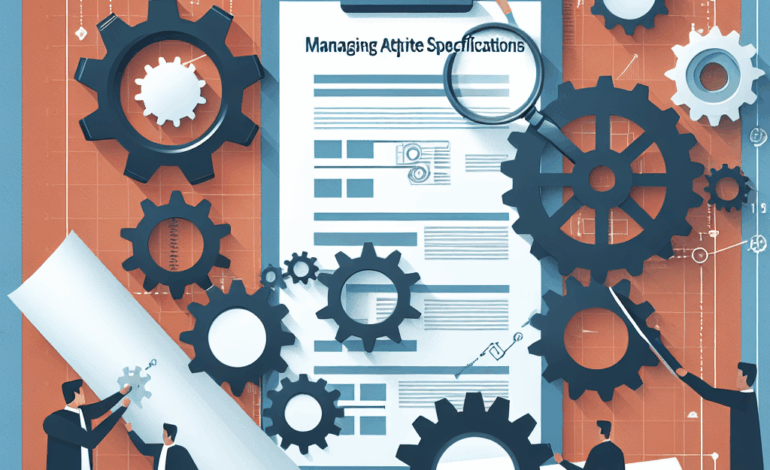Urgent Update: Organizations Revamp Data Management Practices

UPDATE: As the digital landscape rapidly evolves, organizations are urgently revamping data management practices to enhance decision-making and drive innovation. New reports confirm that effective management of attribute specifications is vital for data integrity and usability.
In today’s fast-paced environment, organizations are leveraging data more than ever. The management of attribute specifications—defining, documenting, and maintaining data characteristics—is becoming critical. Experts emphasize that robust management frameworks are essential for harnessing the full potential of data, ensuring organizations remain competitive.
WHAT THIS MEANS: The latest strategies focus on four key methodologies: establishing a strong data governance framework, implementing version control, adhering to industry standards, and leveraging automation tools. These practices are designed to improve data quality and reduce inconsistencies, which can significantly impact operational efficiency.
1. **Data Governance Framework:** Organizations are forming cross-functional teams involving data managers, business analysts, and IT professionals to define roles and responsibilities around data stewardship and compliance.
2. **Version Control:** By adopting version control mechanisms, teams can track changes in specifications, ensuring that they always work with the most current information. This transparency is crucial for auditing and compliance.
3. **Adopting Standards:** Utilizing frameworks like the Data Management Body of Knowledge (DMBOK) and ISO standards is being encouraged. These frameworks provide proven methodologies that lead to improved attribute quality.
4. **Automation Tools:** Companies are increasingly turning to data governance tools such as Collibra, Alation, and Informatica to centralize and document attribute specifications. Automation aids in understanding data lineage and the interrelationships among attributes, streamlining management processes.
BEST PRACTICES: Experts recommend maintaining comprehensive documentation that captures all aspects of attribute specifications. Engaging stakeholders in defining and updating specifications ensures that the information remains relevant and user-friendly. Regular reviews of specifications are crucial to align with changing business needs, and fostering a culture of data literacy can empower employees to uphold data integrity.
EMERGING TRENDS: The future of data management is being shaped by several key trends. Artificial Intelligence and Machine Learning are being integrated into management processes, assisting with automatic classification and anomaly detection. The adoption of Data Fabric Architecture offers a unified approach to manage data from various sources, enhancing how organizations view and manage their attribute specifications.
Amid growing concerns about ethical data usage, organizations are also focusing on incorporating guidelines around data privacy and security into their attribute specifications.
WHY THIS MATTERS NOW: As organizations adapt to these new methodologies, the implications for data-driven decision-making are profound. Effective management of attribute specifications directly influences the integrity, usability, and compliance of data, making it a pressing issue for companies aiming for success in today’s data-centric world.
Stay tuned for more updates as organizations implement these critical changes and adapt to the evolving data management landscape.






